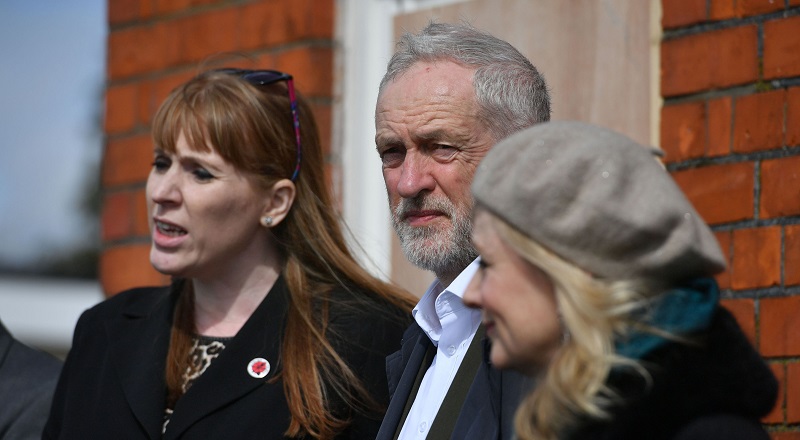Labour will not make the chief executives of multi-academy trusts redundant if it wins power, a shadow education minister said.
Tracy Brabin, the shadow early years minister, reassured school leaders at the annual conference of the National Association of Head Teachers today that they won’t lose their jobs at the top of academy chains under her party’s proposals to curtail the academies system.
This isn’t about making anybody redundant
Last year, Angela Rayner, the shadow education secretary, announced that Labour will significantly boost councils’ powers, giving them the right to take back academies from failing academy trusts and creating a “common rule book” for all schools. New academies and free schools will also be banned.
The proposals have prompted concerns that Labour could close existing academies, but the party denies it intends to forcibly take all schools back under local authority oversight.
In her speech today, Brabin railed against some MAT chief executives for earning “fat cat salaries from taxpayers’ money while financial mismanagement and scandals grow”, and said her party would create a system “where all schools follow the same rules and schools are meaningfully accountable to the communities they serve”
But when quizzed by Gary Wilkie, chief executive of the Learning in Harmony Academy Trust, following her speech, Brabin insisted those in charge of MATs would not lose their jobs.

Wilkie said he was “very proud” to be the leader of a “values-driven multi-academy trust”, and asked: “If Labour are the next government, will I be made redundant?”
“This isn’t about making anybody redundant Gary, and I’m sure you’re an absolutely superb leader,” replied Brabin.
“What it is about is about accountability. We can’t have schools run from Whitehall and big organisations that are going into schools and education because it’s a way to make money.
“The marketisation of the school system means that for some academy trusts, they are shadowy, they are unaccountable, money is going into shareholders’ pockets and not into the school itself. It’s about giving a level playing field to all children.”







It’s just so much politically driven rubbish. No more or less rubbish than the stuff spouted by the Conservative party (and all other politicians) but just not challenged by Schools Week in the same way.
You want to talk about accountability, how about the fact that academy trusts are independently audited every year whilst according to a Schools Week article from December last year more than 2,200 council schools have not been audited by their local authority in more than five years, and that council schools “have been breaking rules over tax checks, issuing contracts and unauthorised pay rises for staff”.
How about transparency? When it comes to setting pay for CEOs, not only does the level of pay have to be published online but it can be, and has been, successfully challenged. Much more of this is needed, no question, but compare this with council schools where apparently it was “the governing body” which was allowed to decide to pay Craig Tunstall £366,983 a year for being an executive headteacher. How “shadowy” was that? How accountable were they to the communities they served?
And then we have the trope about “money going into shareholders’ pockets”. Firstly, whenever a school buys a book, or uses electricity, or sends a letter, money “goes into shareholders’ pockets”. When the Labour Government set about addressing the chronic long-term underinvestment in school buildings, at a time when we only had council schools, guess who made pots and pots of money. Yup, shareholder-owned builders. This is what happens everywhere in every sector in every country. (According to the PACA committee last year “The UK Government spends £251.5 billion per year on outsourcing and contracting. The UK spends 13.7% of GDP on public procurement, which is not significantly different from countries such as Denmark (14.16%) or Germany (15.05%)”. I don’t know the details, but I’d be prepared to bet most, if not almost all, of that is paid to businesses with shareholders.)
What Brabin’s referring to here though, and what she’s trying to get people to think is the ‘normal’ situation, are those academy trusts set up by businesses (think Bright Tribe) where there can be a question mark over whether that business is getting a financial advantage as a result of running the trust. But the vast majority of academy trusts are set up by schools, or by CofE or Catholic Dioceses. No shadowy businesses pulling the strings behind those organisations.
Don’t get me wrong, there are plenty of ‘bad’ academy trusts, and some that are indeed ‘dodgy’. Lots more have practices and policies that could be improved. More energy and work is needed to make them better. I also think it’s a good idea that councils should be able to take back schools if they can show they would do better.
But this Animal-Farm-like dogma of “academy trusts bad, council schools good” is just as much drivel as anyone telling you that becoming an academy is a silver bullet that will solve all your problems.